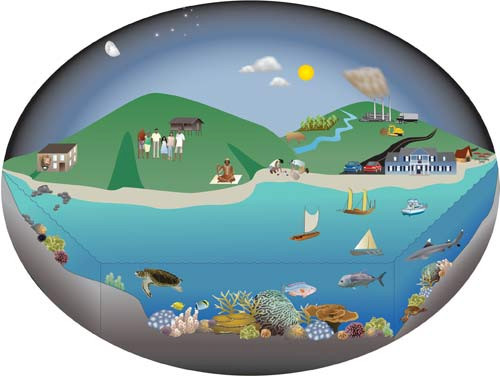Learning through inquiry and observation
Joanna Woerner ·How do we learn about the world around us? How do we tap into the natural curiosity kids possess? How do you create a sense of place in a virtual world?
Such hefty questions require expert knowledge from a variety of fields. Thus, IAN and the National Park Service Pacific Island Network Inventory and Monitoring are working with high school science teacher Amber O'Reilly, coral graduate researcher Rebecca Most, and Pacific Islanders Trisann Bambico and Charlene Afu to create web-based and outdoor activities that communicate the importance of corals through inquiry and observation.

Whether youths have strong connections to the ocean and reefs through family fishing traditions or have never dived below the surface to observe the marine environment, successful activities must align with students' background knowledge. Therefore, we have decided to design a web site and activities that will allow learners to choose their experience and observe the topics that are most interesting to them. The goal is to create games, videos, and animations that allow learners to observe corals and inspire them to develop their own questions. This approach breaks the linear mold of presenting concepts, memorizing facts, and then repeating the phrases they've read. We are far beyond the transmitter-receiver philosophy of communication and learning. We want learners to be able to jump from topic to topic, explore trains of thought that are logical to them, and give them the resources to explore inquires they themselves develop.
We've set a challenging goal, but with the scientific knowledge of NPS resource managers, the pedagogical skills of NPS interpretive staff, the science communication skills of IAN, the classroom experience of formal educators, the traditional knowledge of Pacific Islanders, we will create engaging and exciting activities on coral reefs and climate change. Stay tuned to see how we progress.

